POCO delivers a phone with blistering performance and stellar battery life — while undercutting the Nord 2.
The mid-range segment has seen a flurry of launches over the last six weeks, with the Realme X7 Max, Reno 6 Pro, and the OnePlus Nord 2 all making their debut. POCO has also thrown its hat in the ring with its latest device, the F3 GT.
The F3 GT uses the standard POCO F3 as a foundation, but you won't find a lot of similarities between the two phones. There's a good reason for this: the POCO F3 GT is a rebranded version of the Redmi K40 Gaming Edition, and as a result you'll find a few unique features that make it stand out from the rest of the phones in POCO's portfolio.
POCO's playbook over the last 18 months has been to rebrand existing Redmi devices and tweak a few things around design and software, and it has largely worked. With the F3 GT, POCO is aiming to offer one of the best mid-range phones available today. India's budget segment is obviously the driver for a bulk of phone sales, and POCO says that the premium segment (phones over ₹40,000 ($540)) witnessed a huge 35% uptick over the last 12 months.
But the mid-range segment (₹20,000 ($270) to ₹40,000 ($540)) hasn't seen as much momentum, but because of inherent potential in this category, brands are now turning their focus here. Of course, that means there's an abundance of choice if you're looking to buy a phone for under ₹40,000. With so many great options already available, does the POCO F3 GT manage to stand out in this increasingly crowded segment? Let's find out.
POCO F3 GT
Bottom line: The F3 GT has a vibrant 120Hz AMOLED screen, incredible internal hardware that ensures lag-free gaming, stereo sound, battery that lasts over a day, and a 67W fast charging. Add maglev gaming triggers and LED lighting at the back, and you get one of the best values in the mid-range segment.
The Good
- Gorgeous 120Hz AMOLED screen
- Amazing battery life with 67W fast charging
- Side-mounted mechanical triggers are great for gaming
- Powerful hardware
- IP53 rating
- Stereo sound
The Bad
- Bloatware out of the box
- Average cameras
- No wireless charging
POCO F3 GT: Price and global availability
The POCO F3 GT is now on sale in India, and should be making its way to other global markets in the coming weeks. The phone is sold in three configurations in India — 6GB/128GB, 8GB/128GB, and 8GB/256GB. There's also a 12GB/256GB model, but that variant hasn't debuted in India. Here's the breakdown of the POCO F3 GT pricing in India:
- POCO F3 GT (6GB/128GB): ₹26,999 ($362)
- POCO F3 GT (8GB/128GB): ₹28,999 ($390)
- POCO F3 GT (8GB/256GB): ₹30,999 ($415)
POCO is incentivizing the launch by discounting all variants of F3 GT by ₹1,000 until August 2, and by ₹500 from August 2 to August 9. The retail pricing listed above kicks in after August 9, so if you're decided on the F3 GT and want to save a little bit more cash, you can do so by picking up the phone right now.
POCO F3 GT: Design and display
The POCO F3 GT is based on the Redmi K40 Gaming Edition, but unlike gaming phones from ASUS or RedMagic, you won't find an aggressive design here. Sure, there are a few etched lines at the back that try to give the phone a bolder stance, but it is lacking in terms of presence.
The F3 GT has mechanical triggers, and they make a huge difference while gaming.
The oblong rear camera module doesn't look very modern, but you do get LED lighting around the housing, and the flash module is enclosed within a lightning cutout. The F3 GT is missing some flair, but it isn't a boring phone by any measure. The phone has a Gorilla Glass 5 back with a matte finish that feels great to hold, and the mid-frame is made out of aluminum. It's clear that POCO made a lot of effort in nailing the in-hand feel, with the phone featuring a radial bevel where the back meets the mid-frame and squarish bevels around the sides.
The result is that the F3 GT feels extremely comfortable to hold and use. The phone is on the heavier side at 205g, but the weight distribution is ideal, and in the week I used it, I didn't notice the heft at all. The matte finish makes a big difference in day-to-day use, ensuring you get a good grip and minimizing smudges at the same time. As an added bonus, the phone has IP53 dust and water resistance, so it has the ability to withstand dust ingress and sprays of water.
The left side of the phone is particularly busy, because this is where the mechanical triggers are housed. They sit flush with the body when not in use, and you can activate them by toggling the two sliders that sit above and below the power button. It feels great to use mechanical triggers for gaming; I like the ultrasonic triggers that ASUS uses on its gaming phones, but they lack the tactile feedback that you get here. So if you routinely play FPS shooters on your phone and want to get an edge, the F3 GT may just be the device for you.
Other usability-focused changes include a camera lens that doesn't protrude from the chassis, so you won't notice any wobble when using the phone on a flat surface. POCO went with a side-mounted fingerprint sensor baked into the power button in lieu of an in-screen option to save costs, and it is fast to authenticate.
Because this is a gaming phone, the F3 GT has LED lighting around the rear camera housing. By default, it kicks in while the phone is charging, going from red to yellow to green as the battery gets filled up. You can also customize it to glow when receiving calls and notifications, and while gaming. Like the rest of the design, the lighting isn't as flashy as other gaming phones, but it is a nice touch nevertheless. Elsewhere, you'll find the usual POCO mainstays: there's an IR blaster, dual-SIM connectivity, and USB-C port at the bottom.
The F3 GT has the distinction of being the first POCO phone in India with an AMOLED panel. While the brand has released several devices with 120Hz refresh rate, they were all based on LCD panels. The 6.67-inch FHD+ screen itself is identical to the standard POCO F3, with that device sold in India as the Mi 11X.
The 8-bit panel on the F3 GT has standout colors and gets sufficiently bright, but I did notice issues with the ambient light sensor. There were times when it didn't crank up the brightness adequately, so I had to manually adjust it with the slider in the notification pane. I didn't see this issue on the POCO F3, so I'm chalking it up to a software glitch that should get resolved with an OTA update.
Another issue is that the screen is set to 60Hz out of the box, so you'll have to go into settings to change it to 120Hz. POCO really needs to either allow users to select between the two refresh rates while setting up the phone or have the 120Hz mode set by default.
Other than that, the screen is a delight to use. The phone has one of the loudest stereo speakers I've used in this category, and they're great for playing videos or gaming. Like the back, the screen is covered by a layer of Gorilla Glass 5.
Overall, the POCO F3 GT doesn't have the same level of flamboyance as other gaming phones, but it's evident that POCO is positioning the device as not just a gaming phone but a mass-market option. In short, it is a well-crafted phone with a matte finish, useful additions like mechanical triggers, and a large 120Hz panel with stereo sound that gets incredibly loud.
POCO F3 GT: Performance and battery
Like other recent mid-range phones, the POCO F3 GT is powered by the MediaTek Dimensity 1200 chipset. OnePlus customized its variant of the Dimensity 1200 on the Nord 2 to leverage a few AI features, but POCO isn't doing that here.
| Specs | POCO F3 GT |
|---|---|
| Software | MIUI 12.5, Android 11 |
| Display | 6.67-inch (2400x1080) 120Hz AMOLED |
| Chipset | 3.0GHz MediaTek Dimensity 1200 |
| RAM | 6GB/8GB |
| Storage | 128GB/256GB |
| Rear Camera 1 | 64MP ƒ/1.8 (primary) |
| Rear Camera 2 | 8MP ƒ/2.2 (wide-angle) |
| Rear Camera 3 | 2MP ƒ/2.4 (macro) |
| Front Camera | 16MP ƒ/2.5 |
| Connectivity | Wi-Fi 6, BT5.2, NFC |
| Battery | 5060mAh | 67W |
| Security | Side-mounted fingerprint |
| Colors | Black, Silver |
| Dimensions | 161.9 x 76.9 x 8.3mm |
| Weight | 205g |
I'm not going to spend too much time talking about the hardware side of things because the Dimensity 1200 is a known quantity at this point. The chipset has a single Cortex A78 core that goes up to 3.0GHz, three A78 cores at 2.6GHz, and four A55 cores at 2.0GHz.
In day-to-day use, the F3 GT is on par with devices that cost twice as much. There's no lag or stutter at all, and the phone blazes through demanding tasks without breaking a sweat. The nine-core Mali G77 GPU delivers stellar gaming performance, and even in intensive titles I managed to get consistent framerates.
MediaTek is onto a real winner with the Dimensity 1200, with the chipset on par with the Snapdragon 870. So it's no wonder that most manufacturers have opted to go with the more affordable MediaTek chipset in lieu of Qualcomm.
Because the F3 GT is billed as a gaming-focused phone, there's custom cooling to ensure it can deliver sustained performance without throttling. POCO notes that the cooling solution should deliver between a 5 to 7 degree decrease in temperatures, but in my use I found that the phone wasn't noticeably cooler than the Nord 2.
In terms of connectivity, you'll find Wi-Fi 6, Bluetooth 5.2, and NFC. There's no AptX HD audio codec here, and even when it comes to connectivity, you're limited to bands N77 and N78 for the Indian variant. It's clear that this is an area where POCO sought to cut costs; with 5G not going to be mainstream for at least another year or so, brands are hedging their bets on the standard.
Xiaomi phones have always delivered outstanding battery life, and that's no different with POCO's portfolio. The F3 GT has a massive 5060mAh battery that lasts over a day with ease. I played games, streamed videos, and went through my feed for a few hours and still managed to get the phone to last a day and a half.
I routinely averaged over six hours of screen-on-time, but what's interesting is that I always had at least 30% or more charge left over by the time I turned in. With most mid-range devices touting a day's worth of battery life, the F3 GT has a considerable edge in this area.
POCO also nailed the brief in terms of charging. The F3 GT features 67W wired charging, and it takes the bundled 67W wall unit just 15 minutes to charge the battery from zero to 50%, with a full charge taking just over 50 minutes. Like most phones in this category, the F3 GT has two 2530mAh cells that charge simultaneously. You will have to use the bundled wall plug and cable to hit 67W on the F3 GT, and the cable itself is angled, ensuring it isn't inconvenient when you're playing while charging the phone.
POCO F3 GT: Cameras
If there's one shortcoming in POCO's portfolio, it has to do with the cameras. While the brand has managed to deliver great hardware on a value, it is yet to deliver a device that takes truly standout photos. The F2 Pro came close last year, but that phone was limited to a few global markets.
The F3 GT has a 64MP primary lens along with an 8MP wide-angle and 2MP macro modules. There's a 16MP camera at the front, and the camera interface itself hasn't changed from earlier this year. As for video recording, you're limited to 4K at 30fps — like most phones in this segment.
The standard F3 didn't really pass muster in this area, but the F3 GT does a better showing. The primary lens holds up just fine in daylight scenarios, producing shots with plenty of detail, good dynamic range, and accurate colors. POCO relies on Xiaomi's camera tuning, and the resultant shots don't tend to be oversaturated. Of course, if you're after that Samsung-esque look, there are plenty of alternatives, including the Galaxy A52.
I'm pleasantly astonished by the quality of the photos in low-light situations. The F3 GT was fast to focus on a subject and took photos with accurate colors while preserving highlights and minimizing noise levels. The phone's 8MP wide-angle lens also does a decent enough job in daylight situations, but falls short at night.
The F3 GT has great cameras in its own right, but with such intense rivalry in this category, you'll find devices that do a better job in this area. If you're looking to buy a phone primarily for shooting photos and videos, the Nord 2 or Reno 6 Pro outmatch the F3 GT. Of course, these devices have their own foibles, but they take better photos.
POCO F3 GT: Software
There isn't too much to talk about on the software front. The POCO F3 GT runs MIUI 12.5.2 based on Android 11 out of the box. POCO devices in the past have come with outdated versions of MIUI (and Android), so it is good to see the brand fixing this particular issue.
Of course, the main talking point in MIUI 12.5 is the fact that you can now uninstall system apps. Xiaomi notes that aside from seven apps, all stock apps can be uninstalled, and that is a big move forward for the brand. The F3 GT still comes with a lot of bloatware out of the box, but the fact that you can uninstall all of it as well as unused MIUI apps is a huge deal.
MIUI 12.5 brings much-needed fixes, but Xiaomi needs to sort out software updates.
MIUI 12.5 also makes the interface feel that much more fluid. I've used it on the Mi 11 Ultra and now the F3 GT for over three weeks, and it's clear that Xiaomi focused on under-the-hood changes to optimize the UI.
There's also a new Game Turbo mode that gives you fine-tuned control over the hardware and lets you disable notifications and calls when you're gaming. This being MIUI, you'll also find a few shortcomings. Control Center is now enabled by default for notifications, and while it houses the power menu smart home device controls, I do not like the look and feel of the pane.
You can easily switch to the older MIUI notification pane, but in doing so, you miss out on smart device controls. Xiaomi should have switched these over to the power menu button like every other manufacturer, but as it isn't the case, you will have to choose between one or the other. Similarly, Xiaomi Keyboard is enabled out of the box instead of Gboard, and while you can go into the settings and switch to Google's keyboard, it's puzzling that this is not already done by default.
But the biggest issue on the software side of things is updates. The POCO F3 GT will get two major Android updates and two years of security patches, and that is just not enough in 2021. With Samsung, Google, and OnePlus offering long-term software updates, it's time for Xiaomi to start doing the same.
POCO F3 GT: The competition
The mid-range category is rife with choice right now, and if you're looking to pick up a phone, you cannot ignore the OnePlus Nord 2. The phone has a more modern design, 90Hz AMOLED panel, Dimensity 1200 chipset, standout camera at the back, and a 4500mAh battery and 65W fast charging. The Nord 2 also has cleaner software (at the moment, anyway), and less bloatware out of the box.
The Realme X7 Max is also a contender to the POCO F3 GT, offering nearly identical hardware — including a 120Hz AMOLED screen, Dimensity 1200 chipset, and 64MP lens at the back — and a 4500mAh battery with 50W fast charging. Realme UI has a modern look and feel as well, and with the device already on sale, you can get it for less than the F3 GT.
POCO F3 GT: Should you buy it?
You should buy this if ...
- You want a powerful gaming phone
- You need a phone that lasts more than a day
- You want a 120Hz AMOLED screen
- You're looking for unique features like gaming triggers
- You need fast wired charging
You should not buy this if ...
- You want fast software updates
- You need a great camera
- You want wireless charging
The POCO F3 GT gives you everything you're looking for in a mid-range phone. The 120Hz AMOLED panel is sublime, the Dimensity 1200 ensures there's enough power for the most demanding of games, the maglev gaming triggers are a delight to use, the 5060mAh battery lasts over a day without fail, and the 67W charger negates the need for leaving the phone plugged in overnight.
You'll find the usual trade-offs here: there's no wireless charging, and POCO's update history is far from ideal. But when you consider what you're paying and the hardware on offer, the F3 GT is a standout choice. Sure, the camera isn't as good as the Nord 2, but if that isn't a priority and you're instead in the market for a gaming-focused phone, the F3 GT is the clear favorite.
POCO F3
Bottom line: The POCO F3 GT has all the hardware features you're looking for, and the addition of the gaming triggers makes it stand out just that little bit more from its rivals. If you want a gaming-focused phone that also takes decent photos, this is a no-brainer.



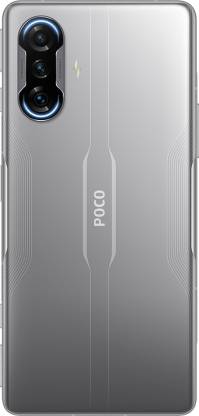
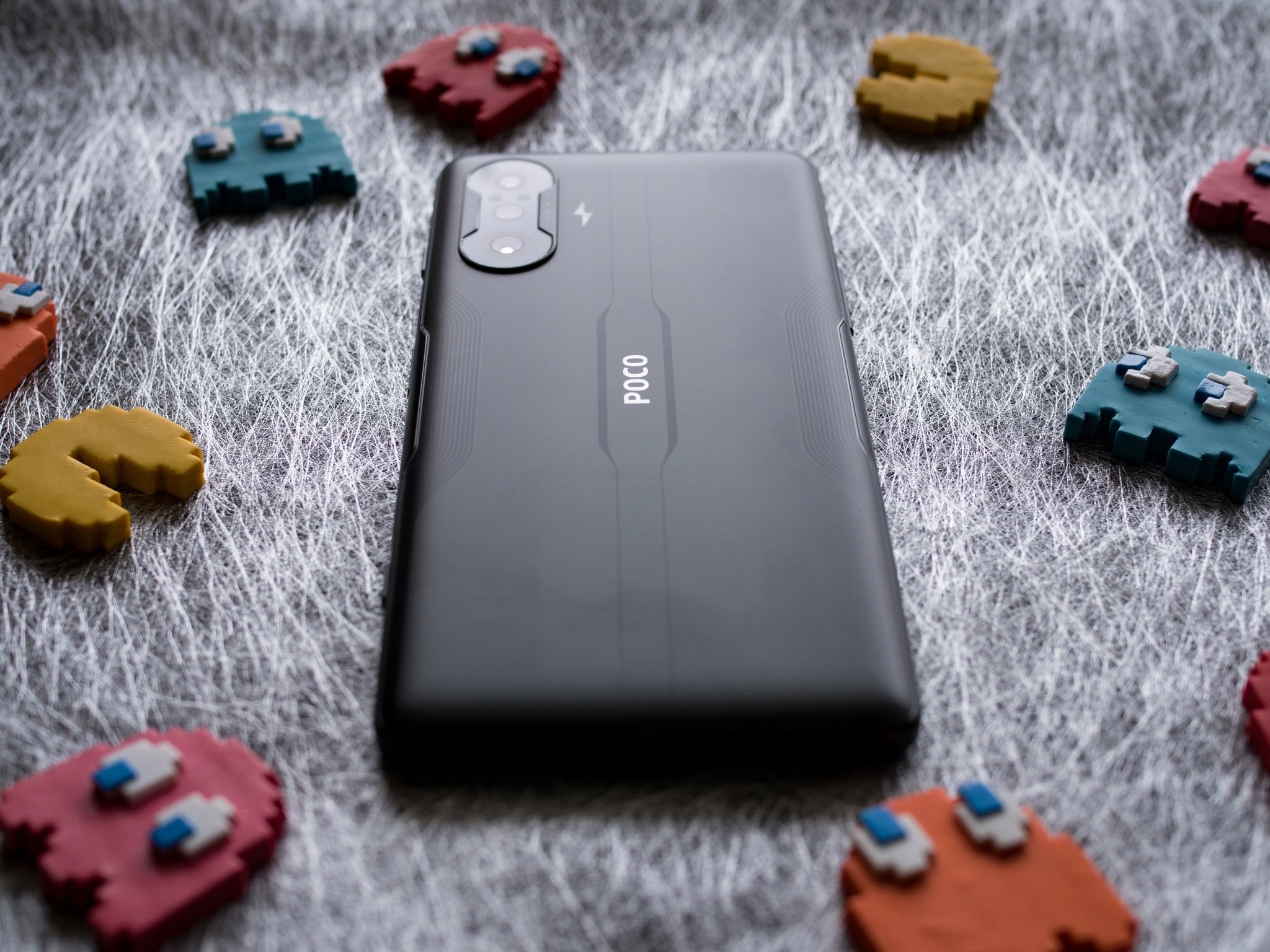

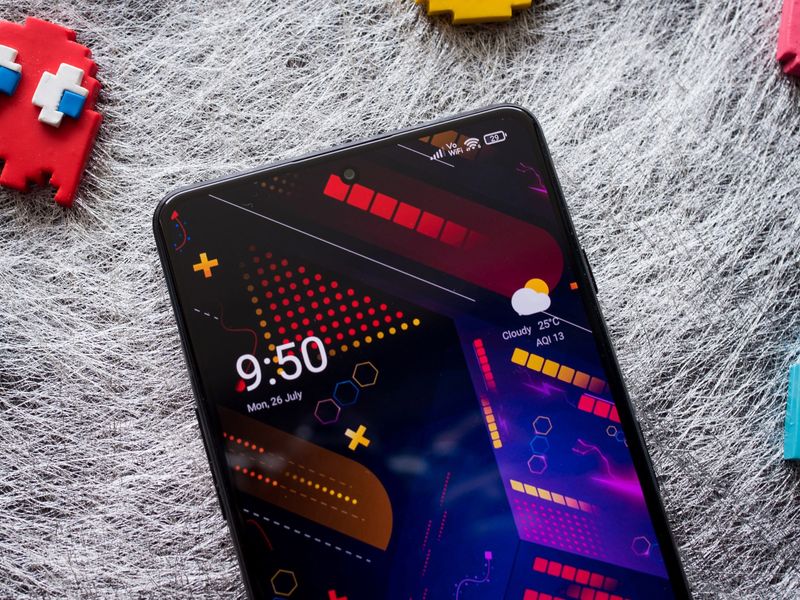
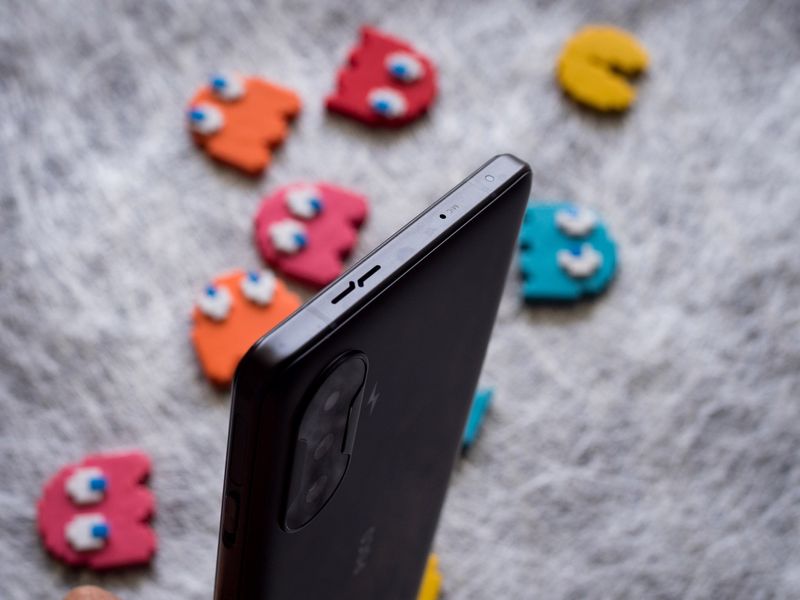
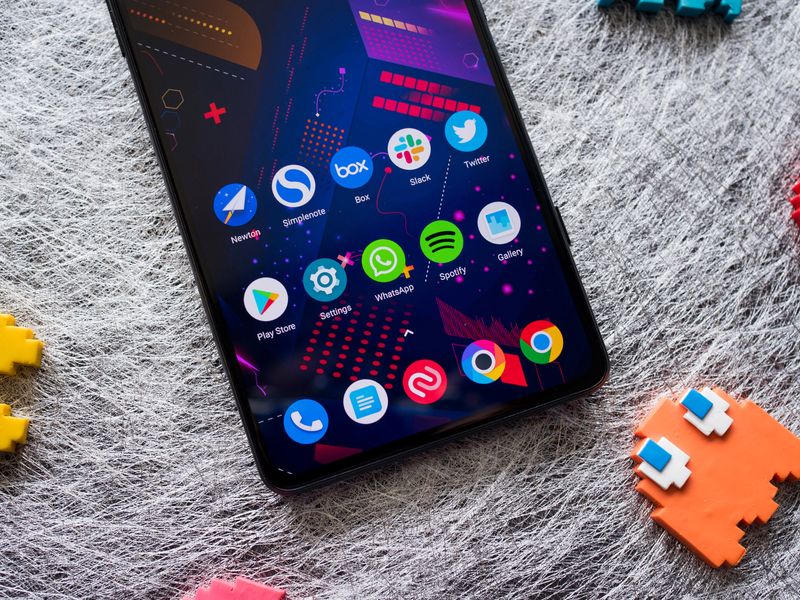
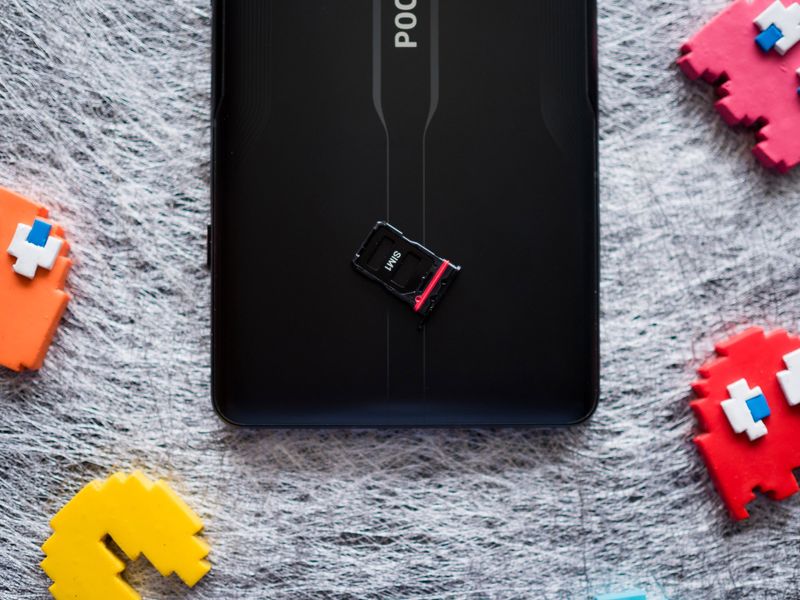
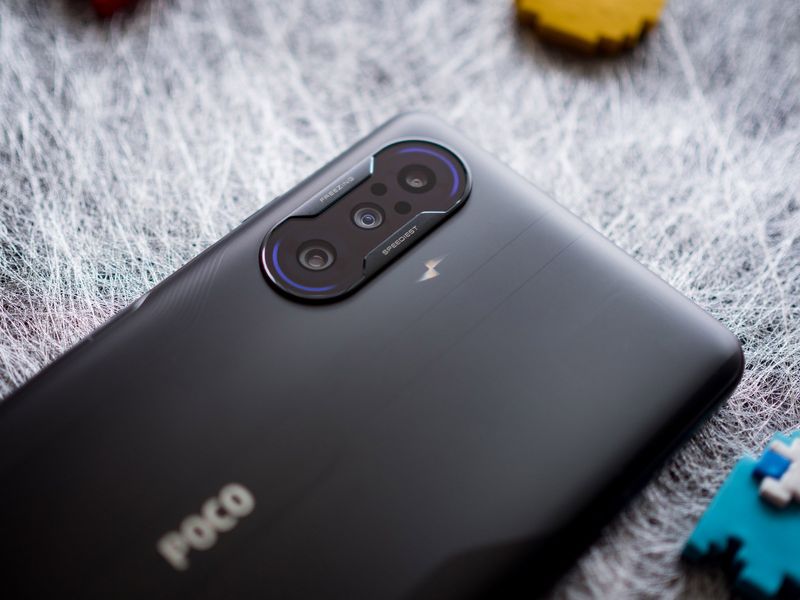
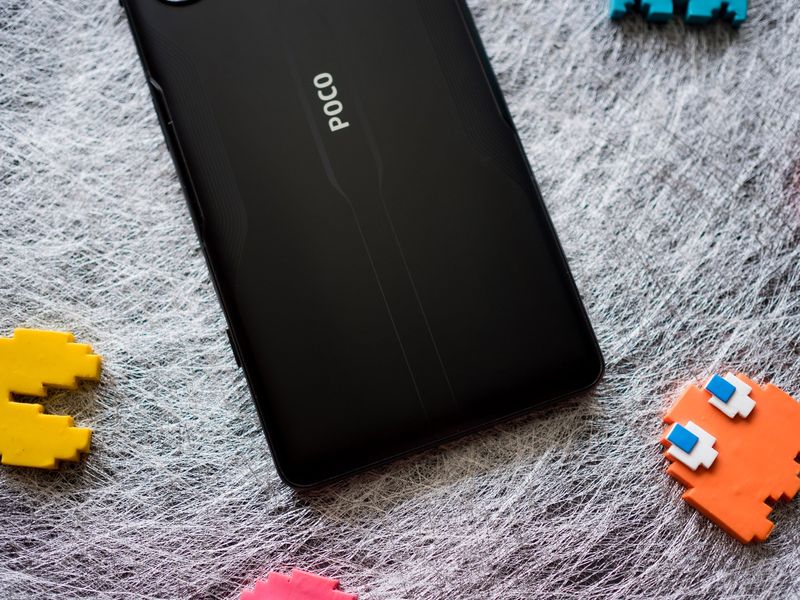
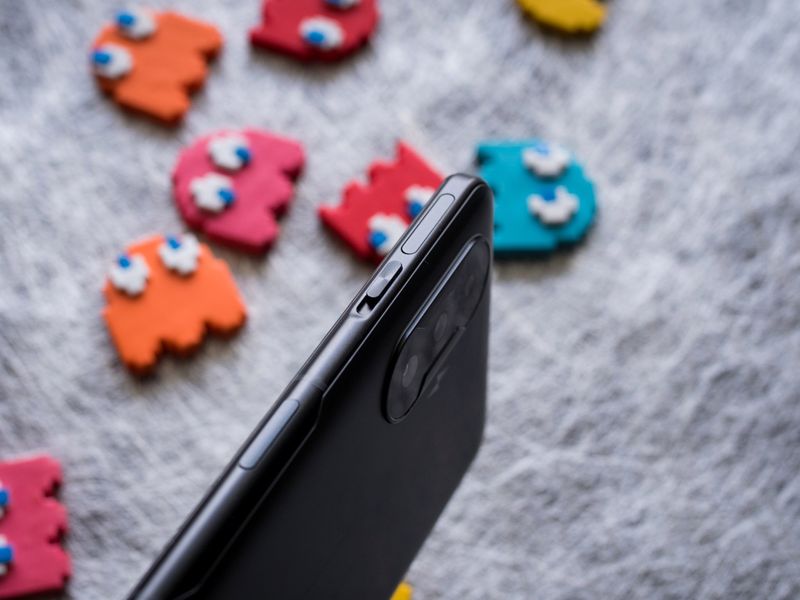
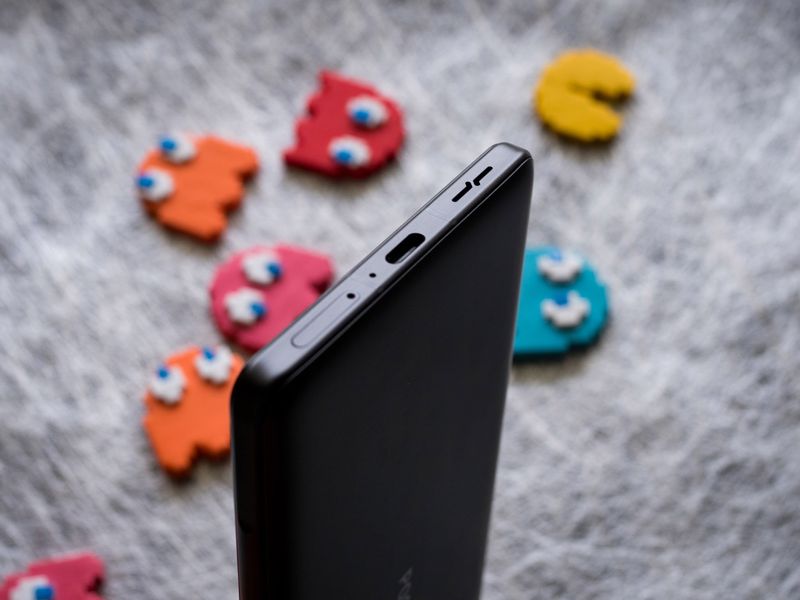
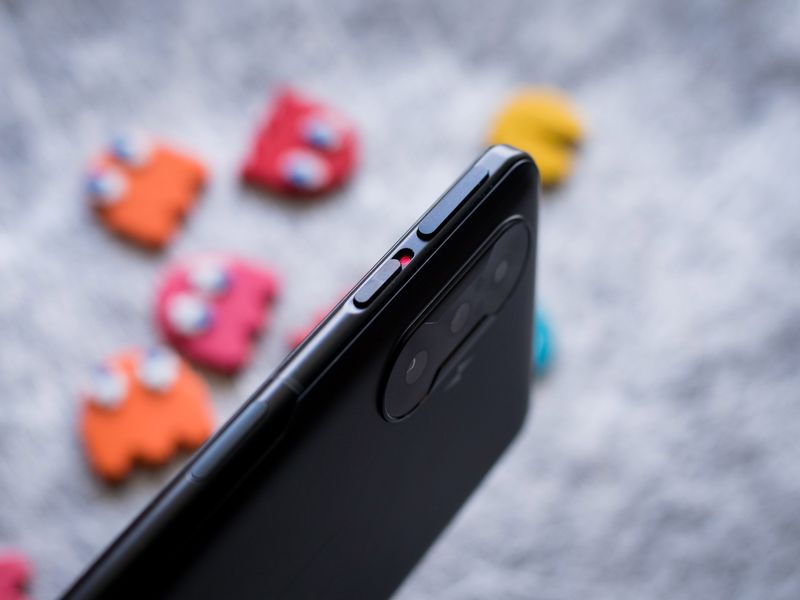
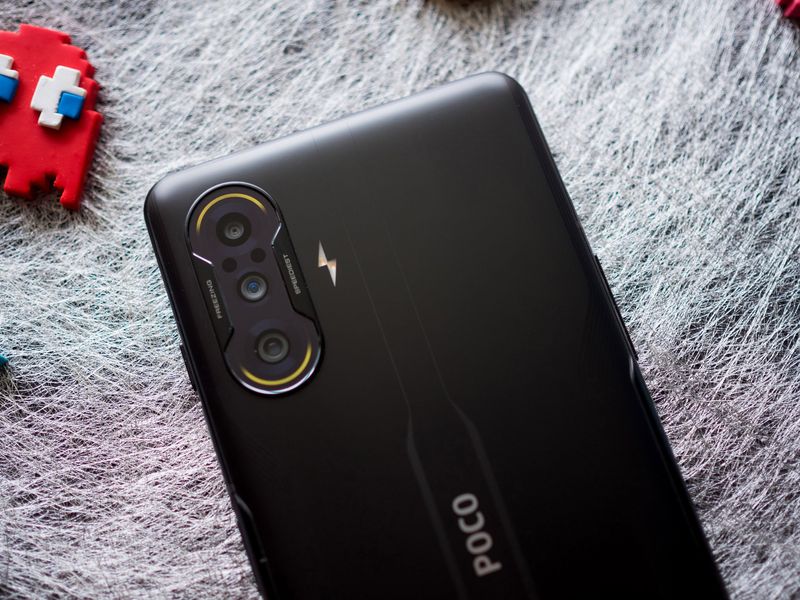
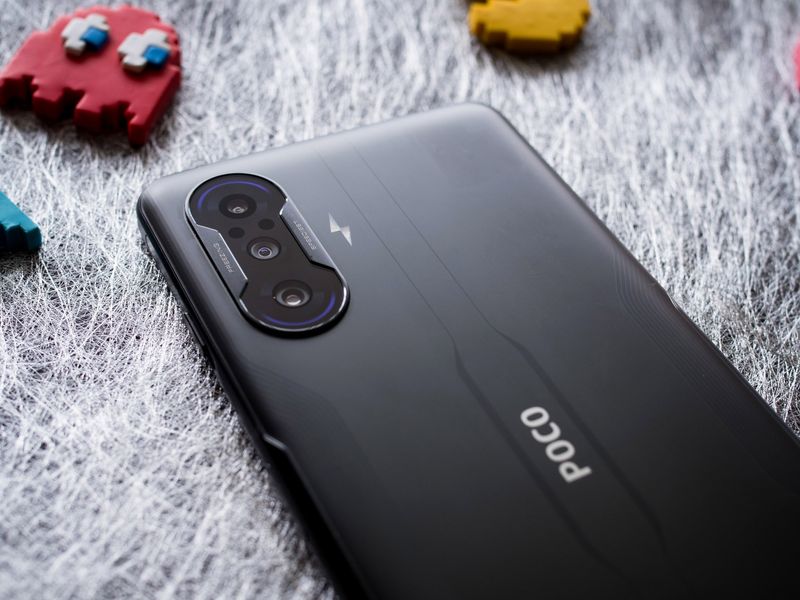
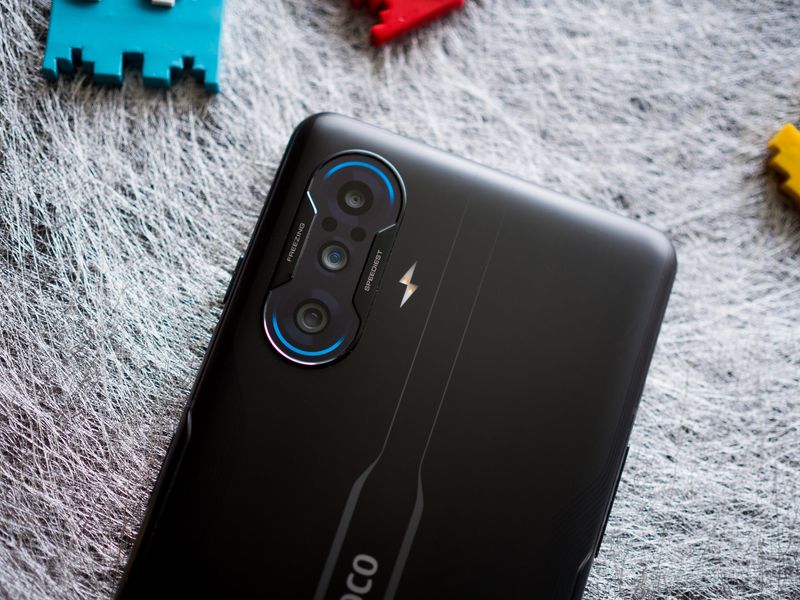
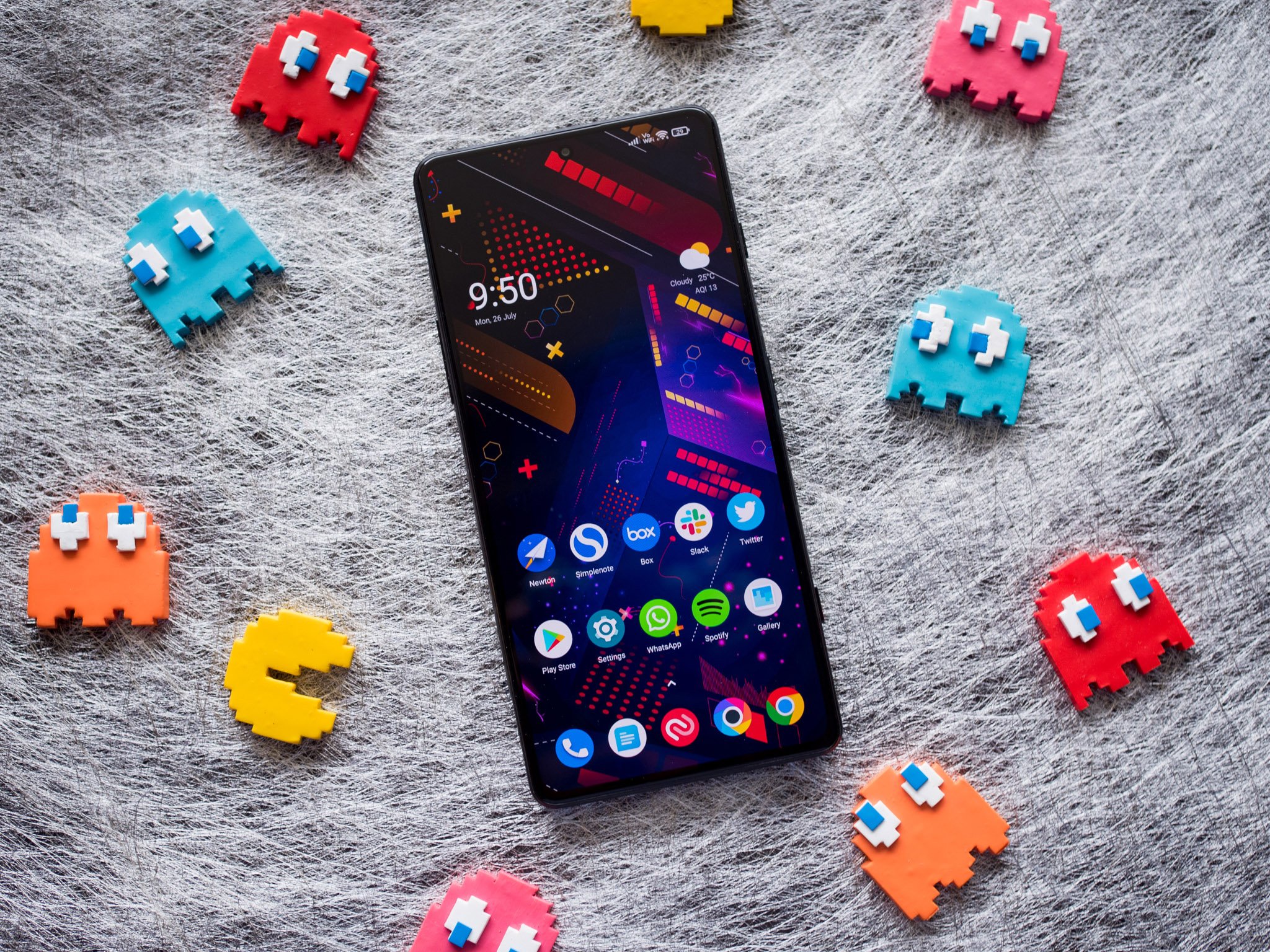
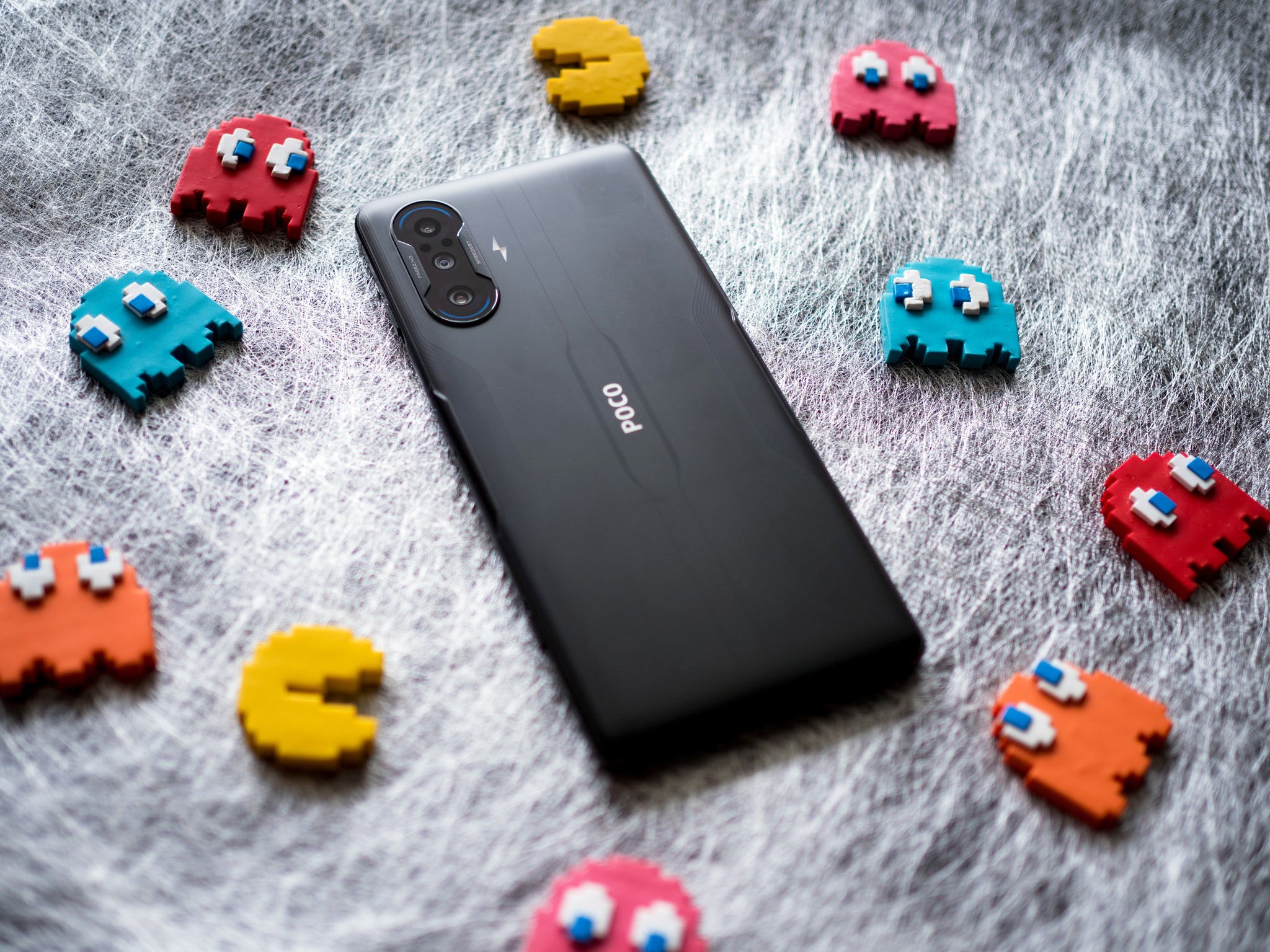
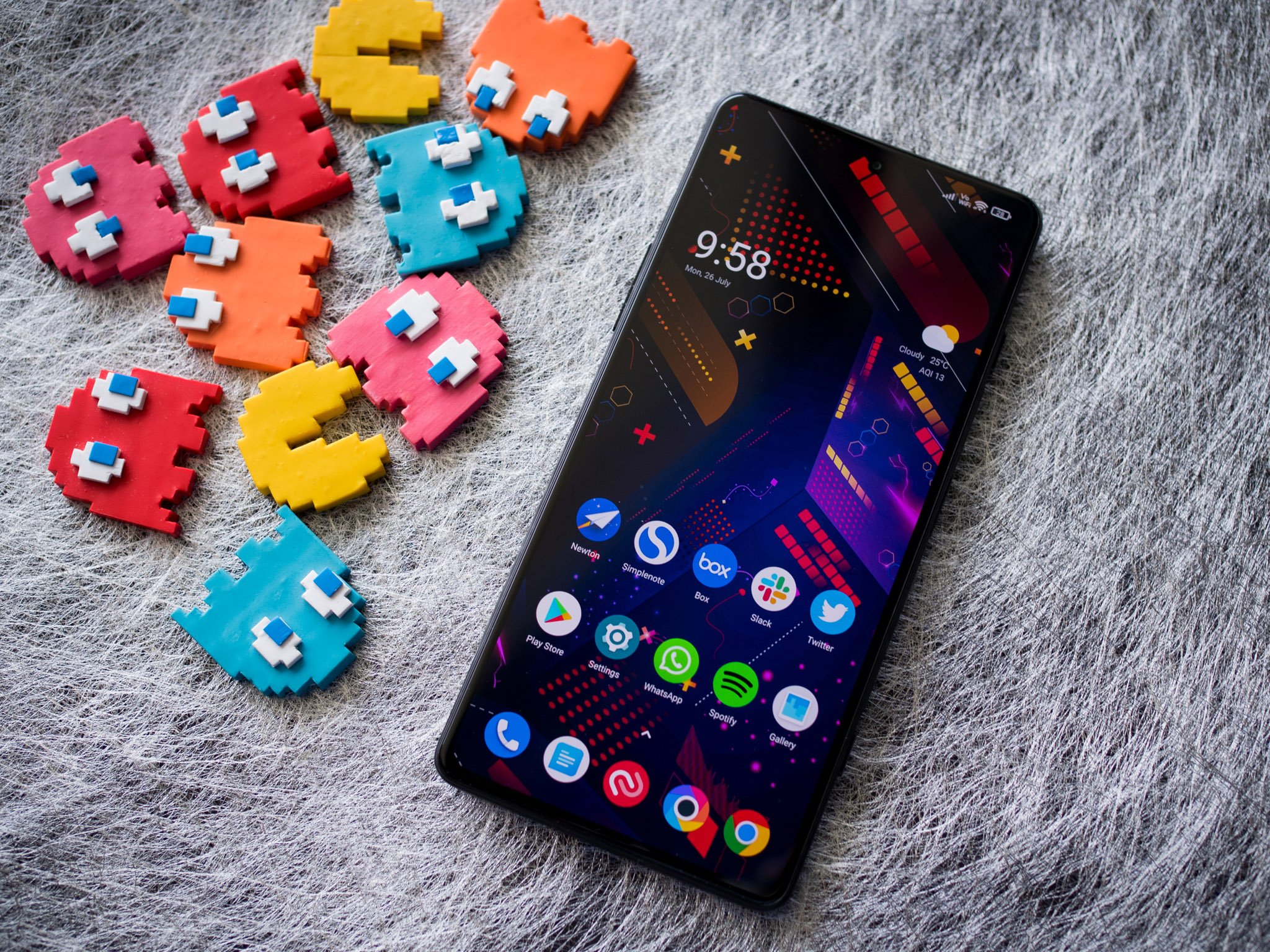


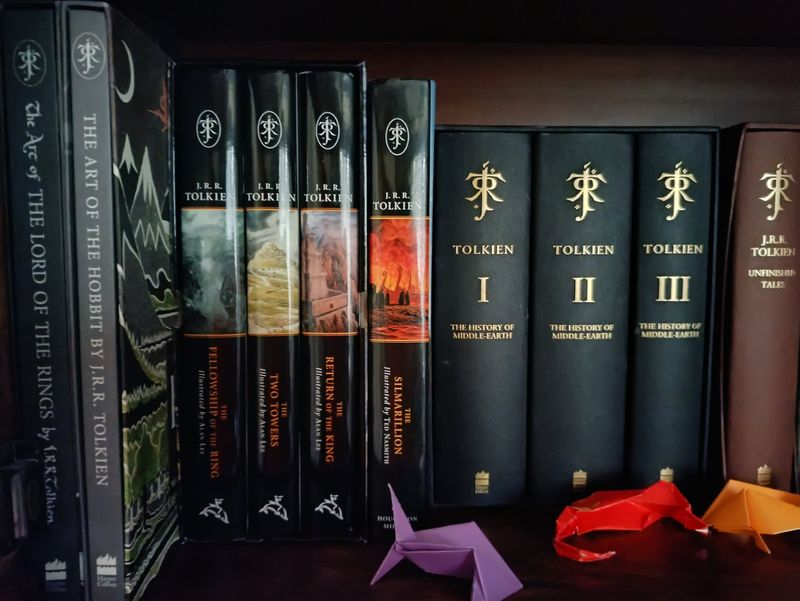





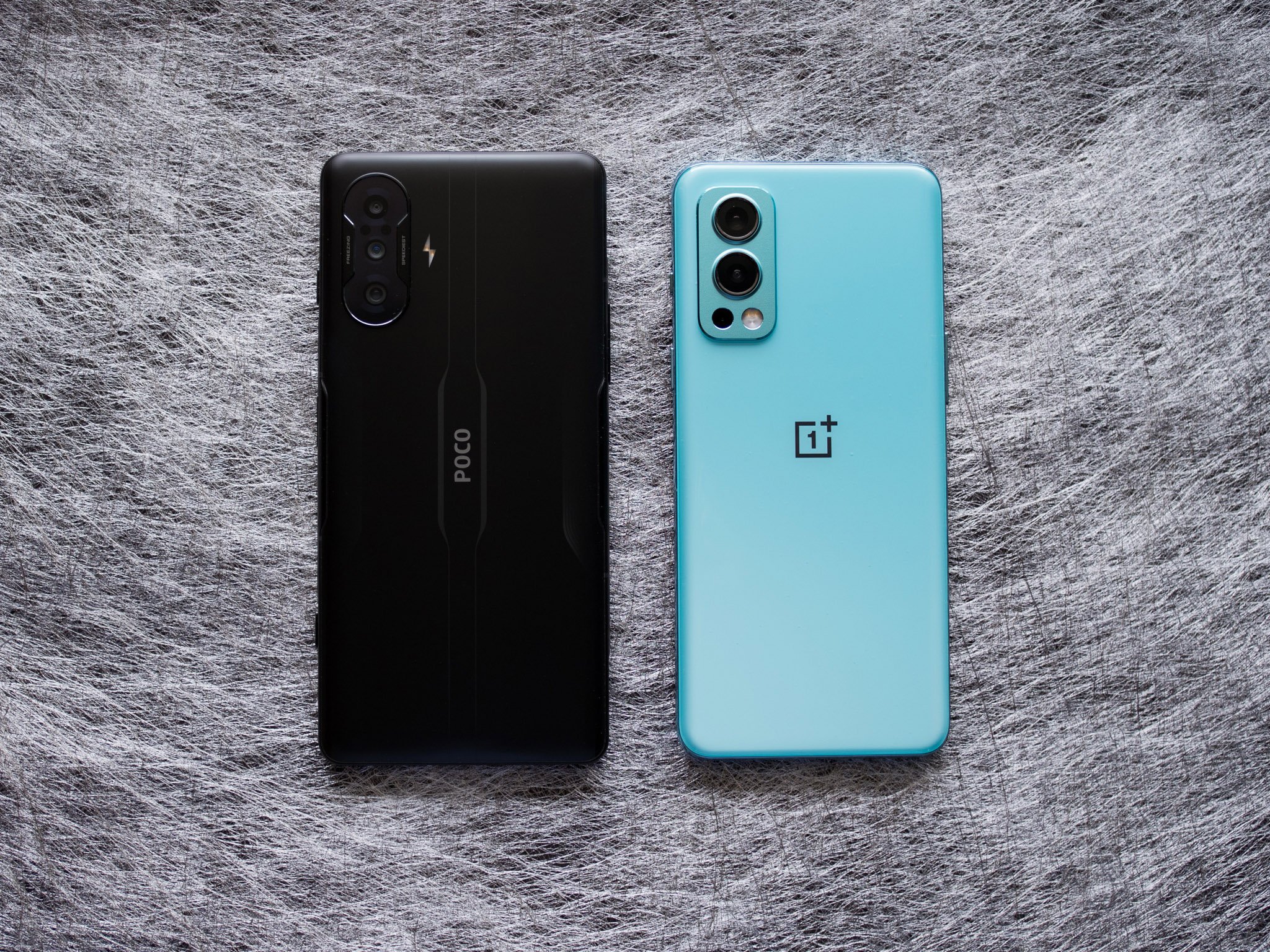
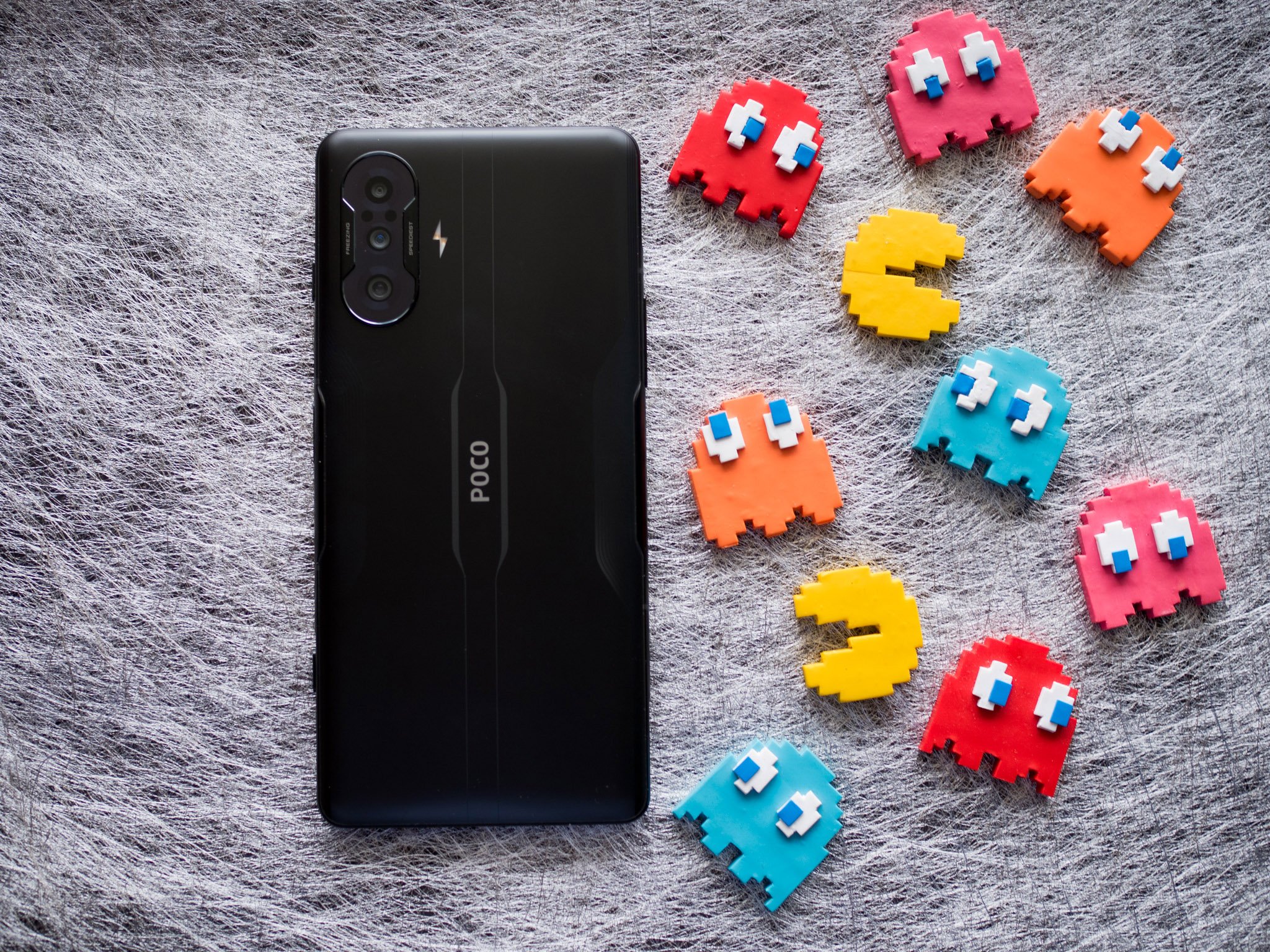

0 Commentaires